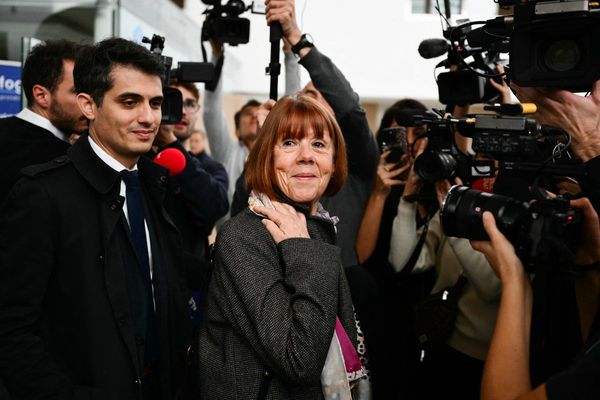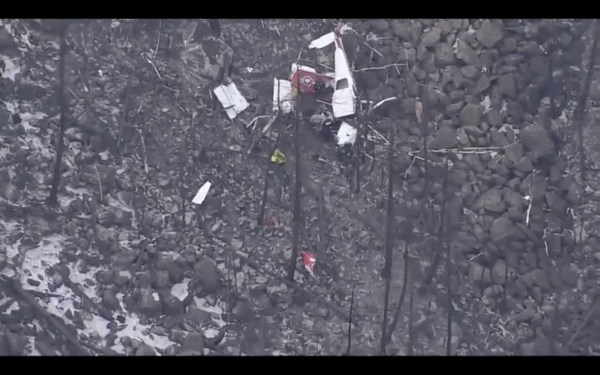TALLAHASSEE, Fla. — Florida’s gambling compact with the Seminole Tribe was struck down by a federal judge late Monday, halting online sports gambling statewide and jeopardizing the tribe’s monopoly on roulette and craps games.
The decision by U.S. District Judge Dabney Friedrich in Washington, D.C., immediately shuts down the mobile gambling system that debuted Nov. 1.
Friedrich ruled that the deal violates the federal Indian Gaming Regulatory Act, which requires that any state-sanctioned gambling must occur on tribal land.
“Although the Compact ‘deems’ all sports betting to occur at the location of the Tribe’s ‘sports book(s)’ and supporting servers ... this Court cannot accept that fiction,” Friedrich wrote.
The lawsuit was brought by West Flagler Associates, a company that runs card rooms in Bonita Springs and Miami, No Casinos, an Orlando-based anti-gambling group, and two Miami businessmen, Norman Braman and Armando Codina against the U.S. Department of Interior for its decision in August to approve the compact.
“We’re gratified with the opinion. It’s regrettable it took a federal judge saying so in order for it to be so,” said No Casinos CEO John Sowinski. “We need our policymakers in Tallahassee and in Washington to follow the law. And the law respects the sovereignty of tribal lands, but tribal lands are finite. They don’t extend throughout the entire state of Florida.”
The ruling jeopardizes payments the tribe pledged to the state as part of the compact, a 30-year agreement that was supposed to pay Florida $2.5 billion in the first five years and $6 billion by 2030. The tribe made its first $37 million payment in October.
Neither Florida nor the tribe were parties to the case, but the tribe filed notice with the court Tuesday it will appeal the decision, as well as its rejection of the tribe’s motion to intervene in the case. Even as the appeal makes its way through the courts, the decision throws doubt on the compact, and whether it will need to be rewritten by lawmakers or adjusted and approved by voters at the next general election.
In a joint statement, House Speaker Chris Sprowls and Senate President Wilton Simpson said the ruling “addresses novel and complex legal issues” and that an appeal could make it all the way to the U.S. Supreme Court. “In the meantime, we will be watching,” they stated.
The tribe’s sportsbook app was not accepting bets Tuesday. It’s unclear what other effects the ruling will have on its gambling operations pending the tribe’s appeal.
“The Seminole Tribe is reviewing the Judge’s opinion and carefully considering its next steps,” said Tribe spokesman Gary Bitner.
The judge left the door open for sports betting to resume but only on tribal land or if voters were to approve a constitutional amendment to allow it. Two such proposals could be placed on the ballot as soon as next year.
“This decision does not foreclose other avenues for authorizing online sports betting in Florida,” the judge wrote. “The State and the Tribe may agree to a new compact, with the Secretary’s approval, that allows online gaming solely on Indian lands. Alternatively, Florida citizens may authorize such betting across their State through a citizens’ initiative.”
One of those initiatives is spearheaded by DraftKings and FanDuel, online sports betting giants shut out of the Florida market by the compact. They’ve poured more than $32.8 million into Florida Education Champions, a political committee gathering petitions to put a measure on the 2022 ballot legalizing sports betting beyond tribal lands and putting the state revenues into K-12 schools.
“Our effort was always mutually exclusive from the compact,” Florida Education Champions spokeswoman Christina Johnson said. “Florida Education Champions’ focus remains in securing the nearly 900,000 valid petitions to make the November 2022 ballot.”
State records show the group has gathered 119,370 signatures. It needs to gather 891,589 by Feb. 1 to make in on the 2022 ballot. Johnson, though, said they’ve gathered 500,000 already but that some were still in the process of being validated by the state.
Gov. Ron DeSantis, speaking to reporters Monday morning, said he hadn’t seen the ruling and suggested the nonsports betting parts of the compact could remain in place. But the ruling struck down the entire compact.
DeSantis conceded the claim that online sports bets processed on servers on tribal lands had never been tried in the courts before but said the federal government didn’t make a good case for it.
“The government wasn’t prepared. It seems like they did a poor job in the argument,” DeSantis said. “We’ll support whatever we can to validate the compact.”
The compact was negotiated by DeSantis and the tribe and approved by the Legislature in a special session in May. The Interior Department approved it in August.
The deal gave the tribe a monopoly on sports betting but required it to contract with five parimutuels throughout the state to market its app. It also gave the tribe exclusive rights to offer craps and roulette at its casinos and authorized three new casinos in Broward and Miami-Dade counties.
The status of three other bills passed during the May special session also is uncertain after Monday’s ruling. The Legislature also passed and DeSantis signed SB 4A, which sets up a gaming commission to regulate and enforce the compact and other gambling laws in the state; SB 6A, a public records exemption related to the commission; and SB 8A, which allows parimutuels to retain card room licenses without requiring jai alai competitions, harness or quarter horse races.
Those bills took effect when the compact became law, but it’s unclear whether they remain so after the ruling.
Under SB 4A, DeSantis is required to appoint the five members of the gaming commission by Jan. 1. A DeSantis spokeswoman did not answer an emailed question Tuesday about whether he still intends to make the appointments.
———
(Mark Skoneki of the Orlando Sentinel contributed to this report.)
———







